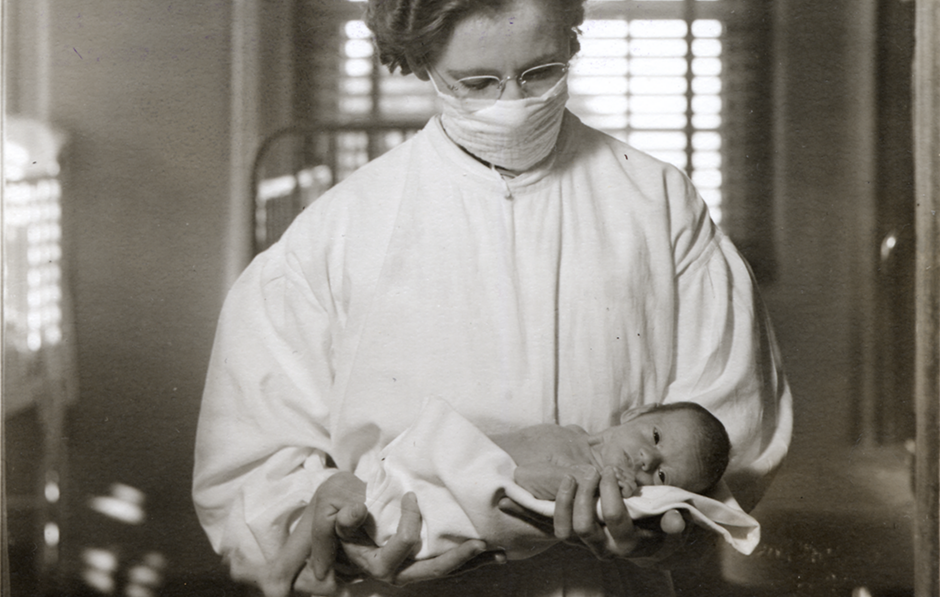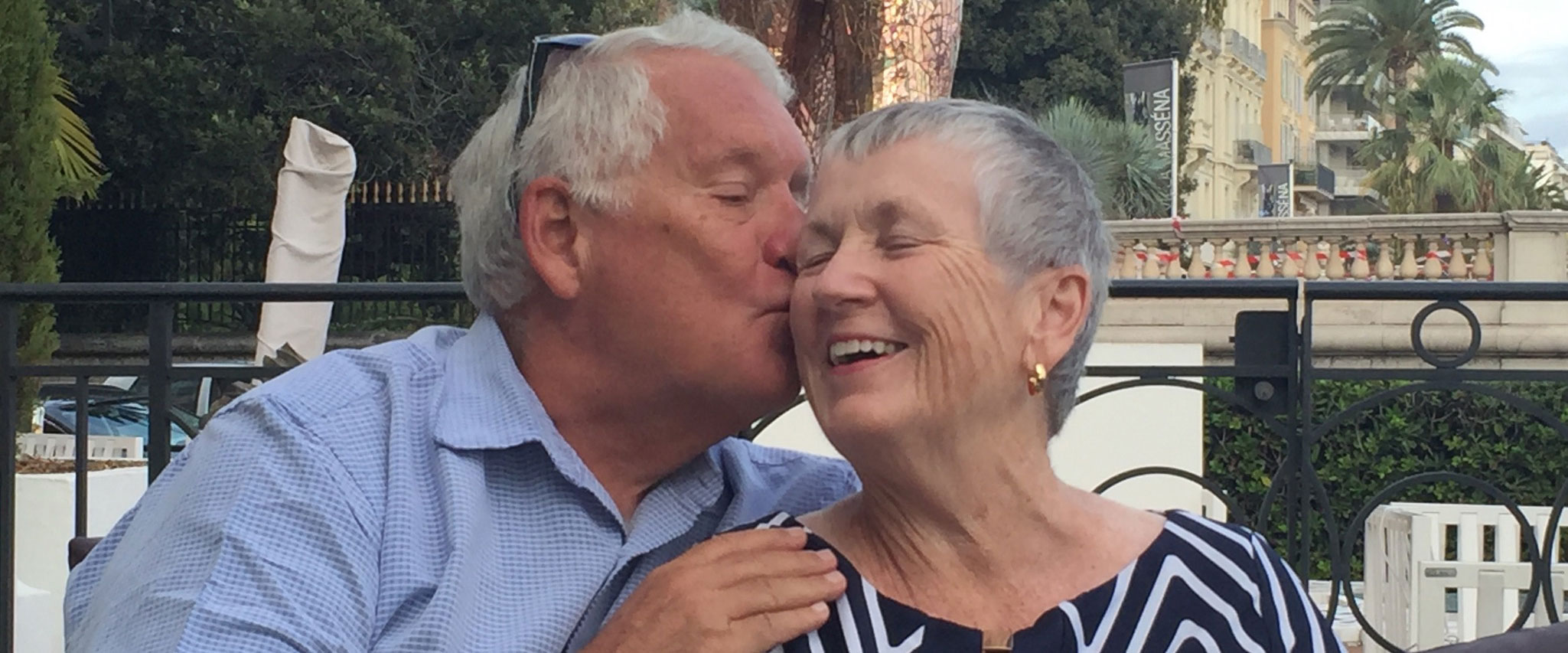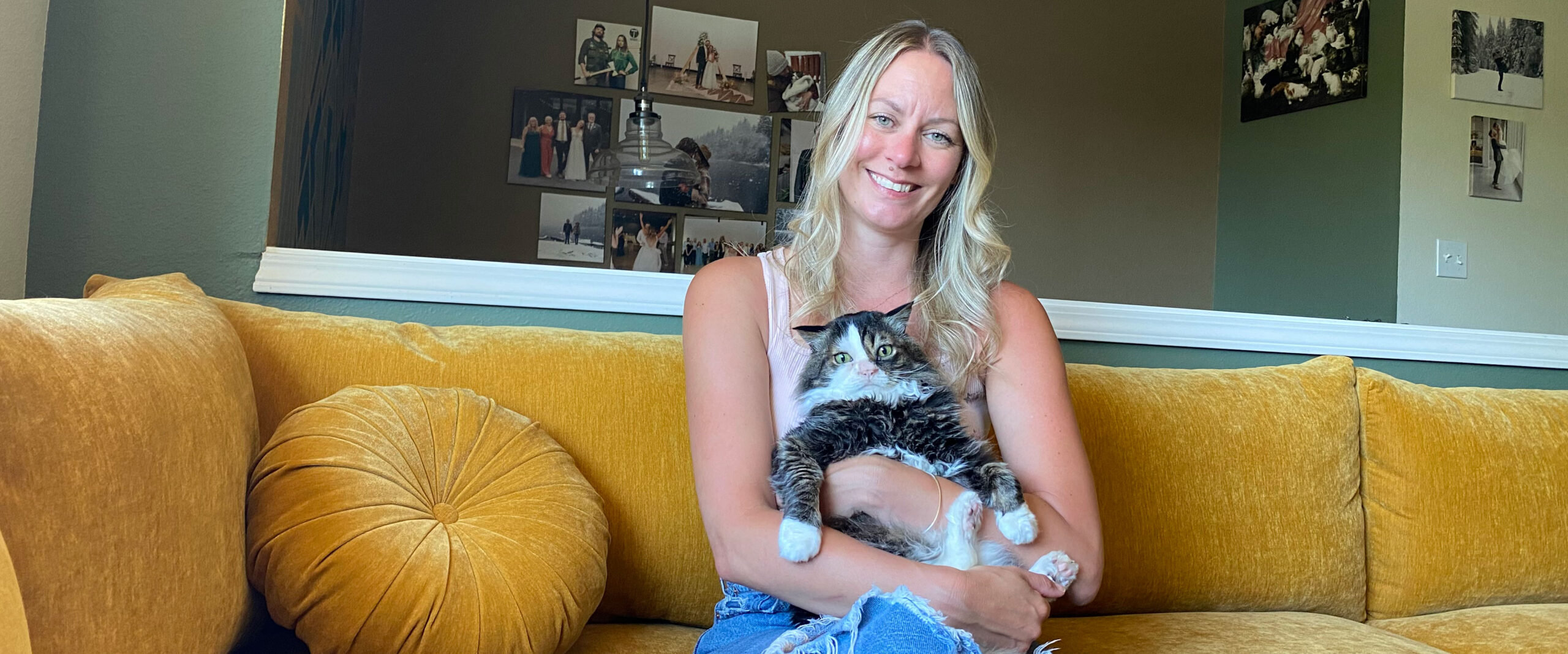It was July 1905 in Indiana, and the doctor had lost all hope of a recovery for his patient, Silvanus Kingsley, who was suffering from typhoid fever. But his nurse, Grace Phelps, refused to give up — claiming she had not lost a typhoid patient yet and did not want to begin now. “The case is yours,” the doctor said. “Do whatever you think should be done.”
Phelps spent 24 hours a day over the next 11 weeks overseeing Kingsley’s healing until, much to the surprise of the doctor, he made a full recovery. He even went on to marry her younger sister and watched as Phelps continued to fight for the lives of her patients.
“That was characteristic of Grace Phelps,” said Kingsley. “All through her life she refused to recognize impossibility. She persisted in doing things that could not be done.”
Four years later, Phelps moved to Portland, where she continued to practice nursing and take classes until she joined the Portland Chapter of the American Red Cross in 1917. Quickly demonstrating superb management skills, Phelps was named chief nurse and tasked with the job of recruiting an additional 100 nursing personnel for deployment to France. She filled the spots within days. Phelps spent the following two years behind the front lines in Bazoilles-sur-Meuse during World War I, treating soldiers and leading the nursing staff at Base Hospital 46 until 1919 when she returned to Portland.
“That was characteristic of Grace Phelps. All through her life she refused to recognize impossibility. She persisted in doing things that could not be done.”
Silvanus Kingsley
Approximately 20 years after treating Kingsley and seven years after returning from war, Phelps brought her talents for leadership, healing and overcoming the odds to her role as superintendent of the newly established Doernbecher Memorial Hospital for Children in Portland, Ore. During her 17 years in this position, Phelps would lay the foundation for the specialized care of children that Doernbecher continues to pride itself on today.
Phelps lived on the hospital grounds and served on call 24 hours a day. Everything from paying the bills to overseeing the nurses to ordering the diapers fell under her purview. She felt strongly about seeing to the special needs of children: “[T]he active mind of the child calls for entertainment, even when the child is ill, and satisfactory progress calls for supplementary treatment,” she said. It’s a philosophy still engrained at Doernbecher.
Phelps was known for her relentless work ethic, sometimes even using her own funds to see a job get done. But her dedication stretched beyond the hospital walls — into advocacy, education and philanthropy. Her primary causes were raising the standards, education and conditions for nurses in Oregon and elevating the importance of hospitals dedicated to the care of children.
“Early in her career, Miss Phelps was fired with ambition to help in the improvement in the education of nurses and their working conditions. The University of Oregon School of Nursing [now the OHSU School of Nursing] came into being largely through her efforts,” said Kingsley in a short piece he wrote about her life.
As a member of several boards and committees, Phelps spoke about how to elevate the standards for nurses in Oregon, and uniformity of the practice across states. She also hired and trained all of Doernbecher’s first nurses.
“The world has come to realize that the children of today are the men and women of tomorrow. If we wish the world to get better, it behooves us to see that children are made healthy and whole and kept that way.”
Grace Phelps, RN
Phelps was one of Doernbecher’s most outspoken advocates, raising public awareness of the hospital’s achievements while emphasizing the need for additional philanthropic support. In a presentation titled Hospitals for Children in the Pacific Northwest, Phelps commented on the significant decline in child and infant mortality thanks to improved hospital facilities that specialize in the care of sick or injured children.
“The world has come to realize that the children of today are the men and women of tomorrow. If we wish the world to get better, it behooves us to see that children are made healthy and whole and kept that way,” Phelps said.
The first years after Doernbecher opened were rocky, especially when the Depression hit and the hospital lacked money to even cover basic operating expenses. She explained how general hospitals lacked the resources to meet the specific needs of healing and caring for children, and Doernbecher was struggling to keep up with the demand. By the mid 1930s Doernbecher caregivers were treating 20 to 25 emergencies a day. By the 1940s, the entire fourth floor was converted to a polio ward each summer, and the pressure for beds was intense. This meant patients faced long waits, the hospital could only admit the most critical cases, and the staff was unable to do any preventive work.
In a public plea for support she said, “The heirs of the Doernbecher estate donated the funds to build this hospital, private contributions furnished it, and the state of Oregon has contributed to its support by legislative appropriations. But it does not have enough money available to meet the calls upon it. It does not seem that there could be a better cause, or better use for money which people might want to give to a charitable endeavor.”
Grace Phelps was described as uniformly optimistic, intently human, with a keen sense of humor and a tireless devotion to the service for others. She was instrumental in getting Doernbecher off the ground in the 1930s, and her spirit of dedication to her patients — even in the face of the impossible — still echoes through the halls of Doernbecher today.




